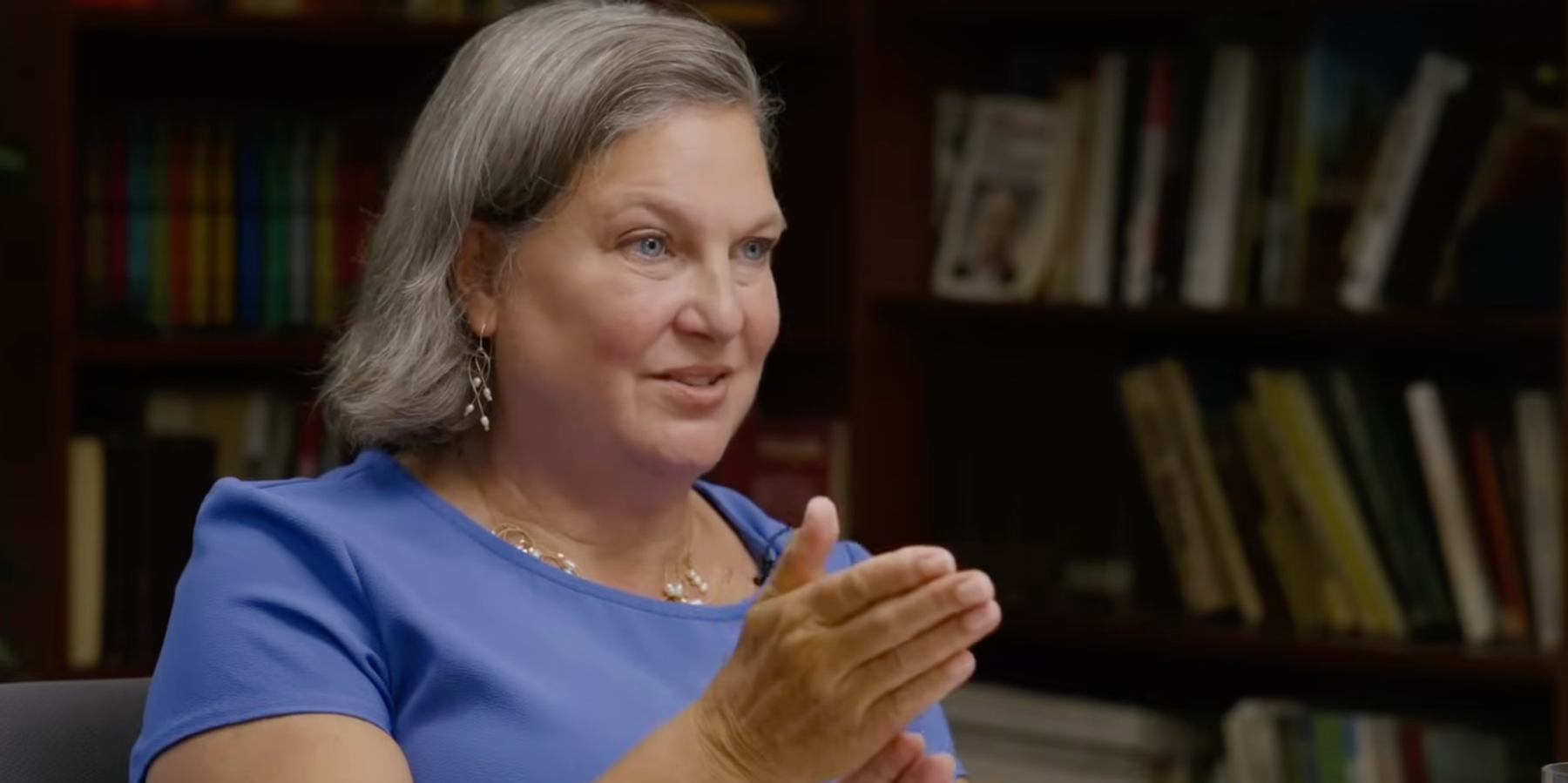Victoria Nuland, former Under Secretary of State for Political Affairs and one of the principal architects of the Biden administration’s Russia policy, has now opined on what is perhaps the foggiest episode in a war distinguished by a nearly impenetrable kind of diplomatic opacity: the April 2022 Istanbul peace talks between Russia and Ukraine.
Furthermore she acknowledges that there was a deal on the table and that Western powers didn’t like conditions that would have limited Ukraine's military arsenal, lending credence to the theory that Ukraine’s supporters had a hand in ultimately scuttling it.
To be sure, neither the topic nor the content of Nuland’s comments is new. She is but the latest in a cavalcade of high-profile insiders, including former Israeli Prime Minister Nafatli Bennett and Ukrainian politician Davyd Arakhamia, whose testimony has shed light on the external pressures possibly informing the Zelenskyy government’s fateful decision to pull the plug on Turkish-brokered talks surrounding a draft treaty that would have ended the Ukraine war.
But, if we are to arrive at something approximating a full and unprejudiced post-mortem, it remains a necessary even if ungrateful task to carefully catalog all of these accounts — especially one from as influential a Russia policy figure as Nuland.
“Relatively late in the game the Ukrainians began asking for advice on where this thing was going and it became clear to us, clear to the Brits, clear to others that (Russian President Vladimir) Putin's main condition was buried in an annex to this document that they were working on,” she said, referencing Russia’s stipulation for hard caps and other limits on military personnel and types of weaponry that Ukraine can possess.
Such concessions, she argued, should be rejected by Kyiv because they would leave Ukraine “basically neutered as a military force.” She intimated, unsurprisingly without indulging specifics, that these anxieties were expressed by Western officials: “People inside Ukraine and people outside Ukraine started asking questions about whether this was a good deal and it was at that point that it fell apart,” Nuland said.
Just who “outside Ukraine” posed these questions and precisely what effect did these pointed queries exercise on Ukrainian officials? The full story of that short-lived diplomatic interlude is unlikely to be unraveled until after the war, in no small part due to the obvious political sensitivities at play. But there is now what appears to be, even in the most conservative estimation, a large body of circumstantial evidence that Western actors, quite possibly hailing from the UK and other countries which were designated as “guarantors” of Ukraine’s security under the Istanbul draft treaty, expressed reservations about the Istanbul format.
The extent to which these Western reservations were decisive insofar as they constituted a hard veto over the peace talks is a trickier question. One can reasonably surmise that Ukraine would have found it difficult to ink a deal that did not command at least tacit support from the Western countries on which it overwhelmingly relies, but it is no less true that the talks were fraught and, though there were positive signs of a slow convergence between the Moscow and Kyiv on key issues, the two sides were a considerable ways off from fully harmonizing their positions when the deal was terminated.
Victoria Nuland's comments lend further credence to the proposition that a settlement between Russia and Ukraine was on the table in Istanbul, that the West played a role in shaping Ukrainian thinking on the desirability of pursuing negotiations, and that Western leaders apparently conveyed the view that it was a bad deal.
Relitigating these details two years later cannot be dismissed as an exercise in political archeology; the facts of what transpired in Istanbul are as relevant as ever in informing our thinking about endgame scenarios as the war roils into its third year.
- Victoria Nuland never shook the mantle of ideological meddler ›
- Diplomacy Watch: Did Boris Johnson help stop a peace deal in Ukraine? ›
- Nuland & Maddow back at the red string conspiracy board | Responsible Statecraft ›
















